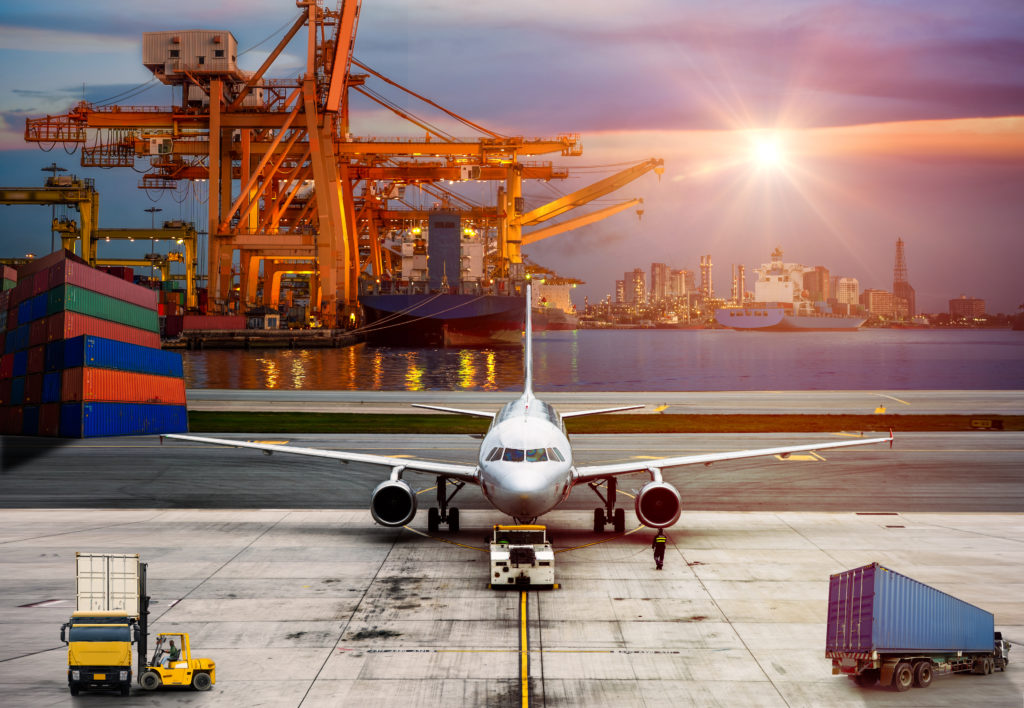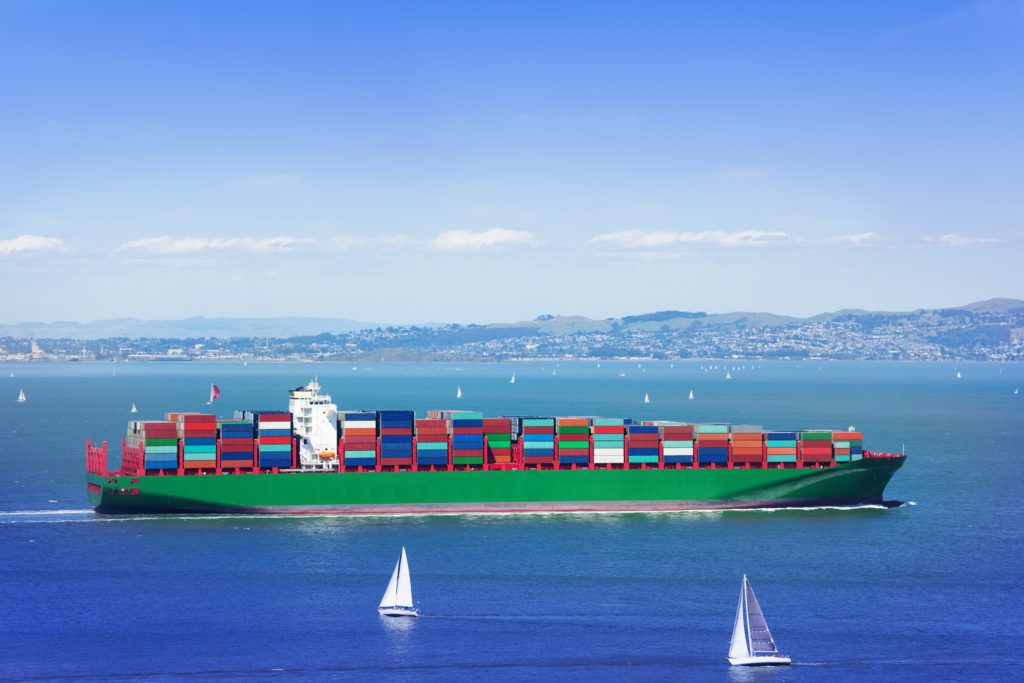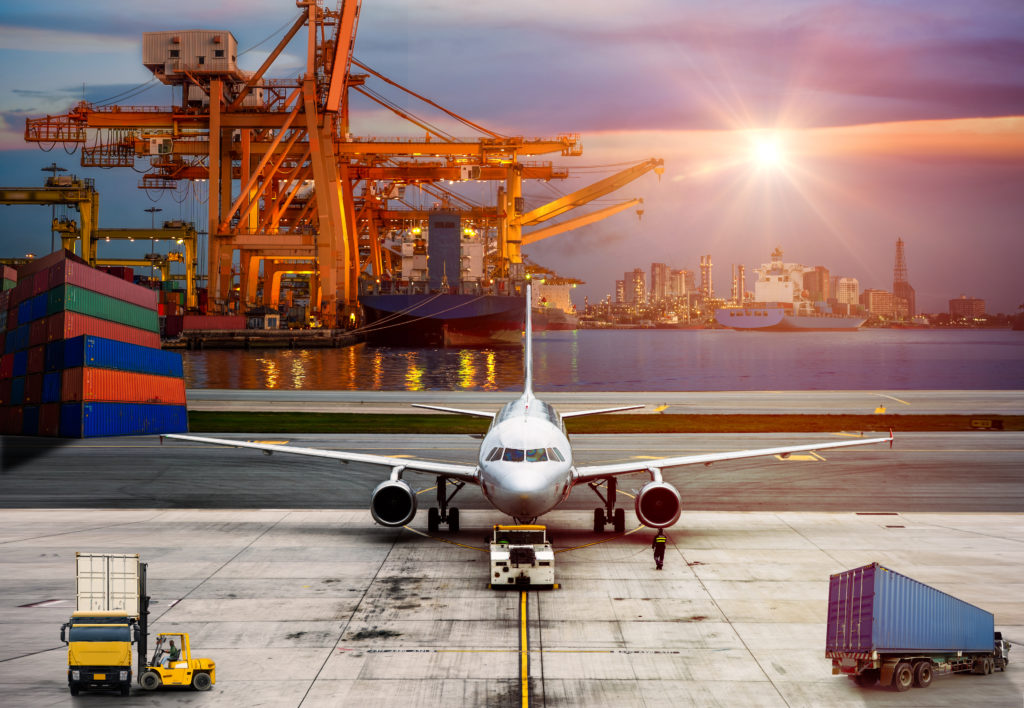Foreign Trade Zone and FDA
FDA Regulated Product in Foreign Trade Zone (FTZ)
What is a Foreign Trade Zone (FTZ)?
A Foreign Trade Zone (FTZ) is a secure area under the supervision of the Customs and Border Protection (CBP) that is physically located within the United States, but is considered to be outside of the Customs territory of the United States for the purposes of payment of duty.
FTZs are located in or adjacent to a port of entry and each port of entry is entitled to at least one zone project. Additional zones may be approved if the port of entry is located within more than one state, if two cities separated by a body of water are embraced in one port of entry, or if the Board finds that existing zones will not adequately serve the convenience of commerce
The purpose of the U.S. FTZ program is to stimulate economic growth and development in the United States. The program was designed to promote American competitiveness by encouraging companies to maintain and expand their operations in the United States by allowing activity to occur in the United States prior to the application of US customs laws.
For further information on the FTZ program, please refer to Foreign-Trade Zones Manual
In-Depth Coverage: Country of Origin
- Country of Origin of Imported Merchandise
- Customs Ruling: Country of Origin
- Country of Origin: Food Products
- Country of Origin: Chemical and Pharmaceutical Products
- Country of Origin & Country of Manufacture: CBP vs. FDA
- Country of Origin: Substantial Transformation or Country of Assembly Test
- Country of Origin and Free Trade Agreement
- Country of Origin and Section 301
FDA-Regulated Products in FTZs
Because FTZs are considered to be outside the Customs territory for the purpose of Customs duties and Customs entry procedures (even though the FTZ is in the U.S.), the import provisions of the Federal Food, Drug, and Cosmetic (FD&C) Act are not applied to foreign products brought into the FTZ. This means that FDA does not determine the admissibility of products brought into the FTZ; rather, the FDA will make an admissibility decision when products are withdrawn from the FTZ for consumption.
Although FDA does not make an admissibility decision when products are brought into the FTZ, FDA does still have jurisdiction over those products. For purposes of the FD&C Act, products located within FTZs are regulated under the domestic provisions of the FD&C Act until they are offered for entry. Once offered for entry, they are regulated under the import provisions found in Section 801 of the FD&C Act.
Export of FDA-Regulated Products from U.S. FTZs
From time to time industry inquires whether regulated products can be manufactured in a Foreign Trade Zone and exported without meeting the requirements of the laws and regulations administered by the Food and Drug Administration.
Foreign Trade Zones are provided in the United States for the trade to hold or otherwise manipulate goods for an unlimited period of time awaiting a favorable market in the U. S. or nearby countries without being subject to customs entry, payment of duty, tax, or bond. The location of an establishment in a Foreign Trade Zone has absolutely no bearing on the jurisdiction of the Food and Drug Administration or the applicability of the laws it administers.
For the purposes of the laws enforced by the FDA, Foreign Trade Zones are part of the United States and the movement of regulated products into or out of such zones, including export, constitutes interstate commerce. Therefore, regulated products in Foreign Trade Zones must comply with those laws that come within the purview of the FDA.
In-Depth Coverage: Cosmetics Import Requirements
In-Depth Coverage: Importing Food Products
- What is FDA Food Safety Modernization Act (FSMA)?
- Prior Notice of Imported Foods
- FDA Food Facility Registration
- Risk-Based Preventive Controls for Human Food
- Risk-Based Preventive Control for Animal Food
- Protect Food against Intentional Adulteration
- What is Foreign Supplier Verification Program (FSVP)?
- What is FSMA Produce Safety Rule?
FDA Authority Over Products of Foreign Origin Located in FTZs, Bonded Warehouses or on Bonded Carriers
On occasion, questions have been raised concerning the FDA's authority over foreign origin products brought into the U.S. for which no entry has been filed or importation has not been made. FDA has the authority to regulate products of foreign origin brought into the U.S. whether or not an entry has been filed.
These unentered products are usually located in U.S. Foreign (Free) Trade Zones, in bonded warehouses or in bonded vehicles. However, the location of goods (truck, bonded warehouse, Foreign Trade Zones, etc.) does not affect FDA's authority over the goods. Products of foreign origin located in Foreign Trade Zones or in bonded warehouses are in the United States, are in interstate commerce and are therefore subject to the laws administered by FDA.
Products entered for transportation and exportation (in bond for transportation through the United States by a bonded carrier without appraisement or the payment of duties) are also subject to the laws administered by FDA.
You can find more information regarding the FDA’s authority over products located in foreign trade zones in the FDA’s Compliance Policy Guide 110.200 and Compliance Policy Guide 110.600.
In-Depth Coverage: Importing Medical Device
In-Depth Coverage: USDA-Regulated Products
- Importing USDA-Regulated Food Products
- Import Regulation by USDA Agricultural Marketing Service (AMS)
- Food Products – FDA or USDA Regulated
- Country of Origin Labeling
- Importing Animals, Animal Products, and Biologics into the US
- Importing Meat, Poultry, and Egg Products into the US
- Labeling and Marking of Imported Meat, Poultry, and Egg Products
- USDA National Organic Program (NOP)
- Agricultural Safeguards and USDA Licensing
In-Depth Coverage: Customs Valuation
What is Weekly Entry Filing?
CBP has implemented a weekly entry filing (WEF) program allowing customs brokers (entry filers) to submit a weekly estimate for repetitive, high volume entries of low-risk products. Under this program, a customs broker (entry filer) can submit a single entry estimating the amount of product that will be withdrawn from the FTZ and offered for consumption into the U.S. during the subsequent week.
Some FDA regulated products may be entered via a WEF process. To do so requires a separate request to FDA for participation in WEF processes, and granting this request. If the request is granted, entries filed under an FDA granted WEF request would not typically be subject to redelivery for sampling or examination by FDA. The following FDA-regulated products may be amenable for WEF processing.
Products that are
- evaluated on a case by case basis and determined by the responsible FDA product center to be “low risk”;
- in compliance with applicable statutory and regulatory requirements;
- manufactured, sourced, and/or imported by firms with a history of compliance with FDA regulations; and
- withdrawn for consumption from a single foreign trade zone.
Customs Clearance and Import Requirements
- Entry of Imported Merchandise
- What is Section 321 Entry?
- What is Automated Commercial Environment (ACE)
- What is an Automated Broker Interface (ABI)?
- Who is Ultimate Consignee?
- What is Non-Resident Importer Program?
- Country of Origin of Imported Merchandise
- What is the Country of Assembly?
- What is the FDA's Country of Manufacture?
- Marking of Country of Origin on U.S. Imports
- What is Customs Bond?
- Reconciliation Prototype and Bond Rider
- Who Needs a Customs Broker?
- What is Customs Ruling Program?
- Classification of Imported Goods
- How is imported merchandise appraised?
- What are Import Quotas?
- What are Trade Remedy Duties?
- Antidumping Duty (AD) and Countervailing Duty (CVD)
- What is Foreign Trade Zone (FTZ)?
- What is Importer Security Filing (ISF)?
- What is Temporary Importation under Bond (TIB)
- What is In-Bond Process?
FDA-Regulated Products and Import Requirements
- What is Food Safety Modernization Act (FSMA)?
- Prior Notice of Imported Foods
- Food Facility Registration
- Risk-Based Preventive Controls for Human Food
- Risk-Based Preventive Control for Animal Food
- Standards for the Growing, Harvesting, Packing, and Holding of Produce for Human Consumption
- What is Foreign Supplier Verification Program (FSVP)?
- Protect Food against Intentional Adulteration
- FDA Regulated Product in Foreign Trade Zone (FTZ)
- Entry Review Process for FDA Regulated Products
- Country of Origin VS Country of Manufacture
- Foods Regulated by FDA or USDA: What is the Difference?
- Label and Labeling Claims for Conventional Food and Dietary Supplements
- What is USDA Country of Origin Labeling (COOL)?
- Import for Export of FDA Regulated Products
- FDA Regulated Products in Personal Baggage or Sending by Mail or Courier
- International Mail Facility (IMF) and FDA Regulation
- Importing Biological Product Regulated by CBER
- Importing Cosmetics and Voluntary Cosmetic Registration Program (VCRP)
- Importing Drugs into the U.S.
- Importing OTC Drugs into the U.S.
- Importing Veterinary Drugs into the U.S.
- Importing Tobacco Products into the U.S.
- Importing Medical Devices into the U.S
- Importing Food Products into he U.S.
- Importing Radiation-Emitting Products into the U.S.
Quick Link To U.S. Customs & Import Requirements
Guidance on customs & logistics solution for traditional and e-commerce importers and exporters
Importer Security Filing (ISF)
An ISF is required when cargo (ocean only) laden on vessel at a foreign port is destined for shipment into the U.S. Under ISF rule, some details regarding cargo must be transmitted to the CBP at least 24 hours before goods are loaded onto the vessel, or at least 24 hours prior to the departure to the U.S.
Freight Forwarding
Looking for a freight forwarding partner? To move your cargo from its current location through customs to its final destination we will partner with you to find the best way for your business. Whatever your transportation, logistics or customs clearance needs, we will do our best to customize a solution for your needs.
Customs Clearance
The goods imported into the U.S. are required to be declared to CBP. Our customs broker will help you stay in compliance with customs laws and regulations and clear your goods quickly and efficiently with our electronic Automated Commercial Environment (ACE) and Automated Broker Interface (ABI) Single Window System
Warehousing & Distribution
Our warehouse facility offers great potential for serving as a regional hub with over 145,000 SF storage capacity close to Los Angeles Airport & Los Angeles/Long Beach Sea port. With our extensive experience in freight services, your import/export cargo will be handled quickly and effectively.
Non-resident Importer Program
If you want to sell your products in U.S. marketplaces, but you are a business owner located outside of the U.S. and do not have an entity or presence in the U.S., you need to be established as a Foreign Importer of Record before your products can be imported into the U.S. We can help you.
Section 321 Entry
Section 321 entry allows importing free of duty and tax for shipments imported by one person on one day having a fair retail value in the country of shipment not more than $800. We provide our resident and non-resident clients with dedicated ACE eManifest solutions for Section 321 entry of all modes of transportation.
E-Commerce
The Internet has made it easy to find and purchase items from almost anywhere in the world. Our e-commerce experts will help you find the right solution for your international transportation, customs clearance, and delivery to your final destination. We also provide value-added repackaging, warehousing and distribution services.





















